U.S. Supreme Court ruling may increase counties' exposure to retaliatory arrest claims
Author
Upcoming Events
Related News

Key Takeaways
On June 20, the U.S. Supreme Court issued a per curiam (unauthored) ruling in Gonzalez v. Trevino, a case with implications for retaliatory arrest claims against local law enforcement. In the case, Ms. Gonzalez asked the Court to reconsider the standard of evidence needed to meet an exception to the rule established in Nieves v. Bartlett that arrests with probable cause do not qualify for retaliatory arrest litigation. She also asked the court to limit the application of Nieves to "split-second" arrests.
- County nexus: The probable-cause rule established by Nieves, provides county governments with important protection against frivolous retaliatory arrest claims, which can lead to costly litigation and have a chilling effect on local law enforcement.
- NACo advocacy: Through the Local Government Legal Center, NACo filed an amicus brief in support of the respondent arguing arguing for a narrow and objective exception under Nieves. The LGLC also advanced the view that Nieves does not apply solely to split-second arrests. Learn more here.
- The Court's ruling: The Court ruled for Ms. Gonzalez in the first question, suggesting that the Fifth Circuit's ruling went too far in demanding virtually identical and identifiable comparators to meet the threshold for the Nieves exception and instead affirming that any form of objective evidence is sufficient. While this decision means that more plaintiffs may be able to bring a retaliatory arrest claim under the Nieves exception by utilizing any form of objective evidence, the Court was careful to emphasize that the Nieves exception is narrow. Additionally, because the Court did not take up the second question, local governments may see future arguments by plaintiffs by plaintiffs that the requirement to plead and prove an absence of probable cause does not apply in non-split-second arrests.
County governments should continue to defend retaliatory arrest claims on the grounds that the exception to Nieves is narrow and requires objective evidence, but law enforcement agencies should carefully review policies and procedures in light of the ruling to guard against increased litigation in these matters.
2024-2025 Supreme Court Term
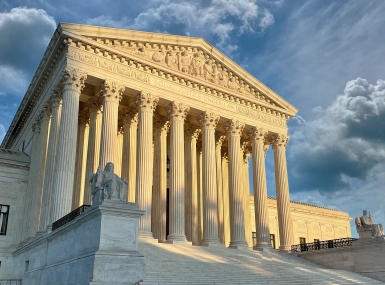
NACo Legal Advocacy: Ames v. Ohio Department of Youth Services
As one of the largest employers in the country, counties have a significant interest in cases like Ames v. Ohio Department of Youth Services (Ames v. Ohio) that could expand county liabilities as employers.

NACo Legal Advocacy: City of Buffalo et al. v. Kia/Hyundai
The question at hand in City of Seattle et al. v. Kia/Hyundai is whether or not the Federal Motor Vehicle Safety Standard preempts state tort claims brought forth by local governments alleging that Kia and Hyundai’s failure to install “reasonable” anti-theft technology constitutes negligence and public nuisance.
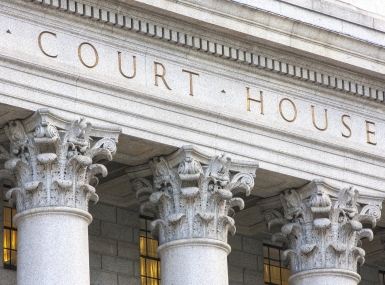
NACo Legal Advocacy: Perttu v. Richards
Perttu v. Richards has implications on the Prison Litigation Reform Act (PLRA) and could increase the amount of Section 1983 inmate-initiated cases against county jails that reach federal court, ultimately resulting in counties having to expend resources on frivolous lawsuits.

NACo Legal Advocacy: McLaughlin Chiropractic Associates, Inc. V. McKesson Corporation
McLaughlin Chiropractic Associates, Inc. V. McKesson Corporation could make it more difficult for counties to challenge FCC orders, many of which have taken steps to preempt and curtail local authority by limiting counties’ abilities to manage their own right of way and assess fair market value permitting and impact fees on providers seeking to construct, modify or extend telecommunications infrastructure in their communities.

NACo Legal Advocacy: San Francisco v. Environmental Protection Agency (EPA)
San Francisco v. Environmental Protection Agency (EPA) has implications for the ability of county governments that own and operate wastewater treatment facilities to comply with National Pollutant Discharge Elimination System (NPDES) permit requirements.

NACo Legal Advocacy: Lackey v. Stinnie
Lackey v. Stinnie will impact the ability of state and local governments to avoid paying litigation fees in a civil rights case if they change their conduct (i.e. repeal a law) after a court has granted a preliminary injunction.

NACo Legal Advocacy: Bondi v. VanDerStok
Garland v. VanDerStok has implications for the ability of county law enforcement to uphold public safety and investigate crimes involving ghost guns.

NACo Legal Advocacy: Stanley v. City of Sanford
Stanley v. City of Sanford will impact the ability of county governments to balance budgets by reducing or eliminating post-employment benefits for disability retirees.
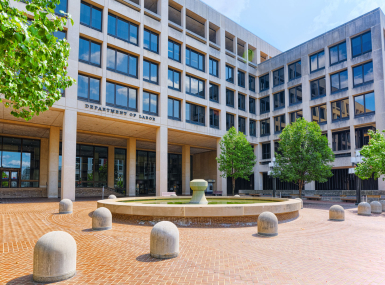
NACo Legal Advocacy: EMD Sales, Inc. v. Carrera
EMD Sales, Inc. v. Carrera could make it more difficult for county governments to prove exemptions under the Fair Labor Standards Act (FLSA), which would increase the potential for costly litigation.

NACo Legal Advocacy: Federal Communications Commission, et al v. Consumers' Research, et al
Federal Communications Commission, et al v. Consumers’ Research, et al. (FCC v. Consumers’ Research) could jeopardize what is known as the Universal Service Fund (USF). Through the USF, the FCC has provided billions of dollars to local governments and our residents, helping provide essential telecommunications and broadband services to unserved and underserved communities. FCC v. Consumers’ Research challenges the FCC’s legal authority behind the USF, putting multiple programs essential to equitable broadband deployment at risk.
Featured Initiative
Supreme Court Advocacy Hub
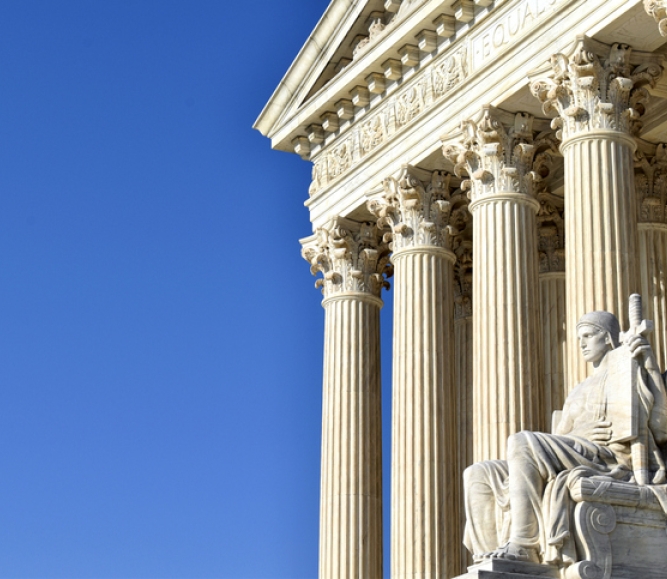
Related News

County Countdown – Dec. 15, 2025
Every other week, NACo's County Countdown reviews top federal policy advocacy items with an eye towards counties and the intergovernmental partnership.

County officials moonlight in search and rescue roles
For some county officials, participating in search and rescue operations is another way to serve their communities, and make it safer for people to enjoy natural recreation resources.
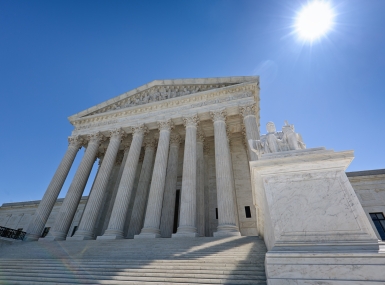
NACo Legal Advocacy: William Trevor Case v. State of Montana
The question at hand in William Trevor Case v. State of Montana is how the “emergency-aid” exemption to the Fourth Amendment is defined and whether it should require “probable cause,” a higher legal threshold that would be needed to justify officers entering the premises of a home in an emergency-aid scenario.
